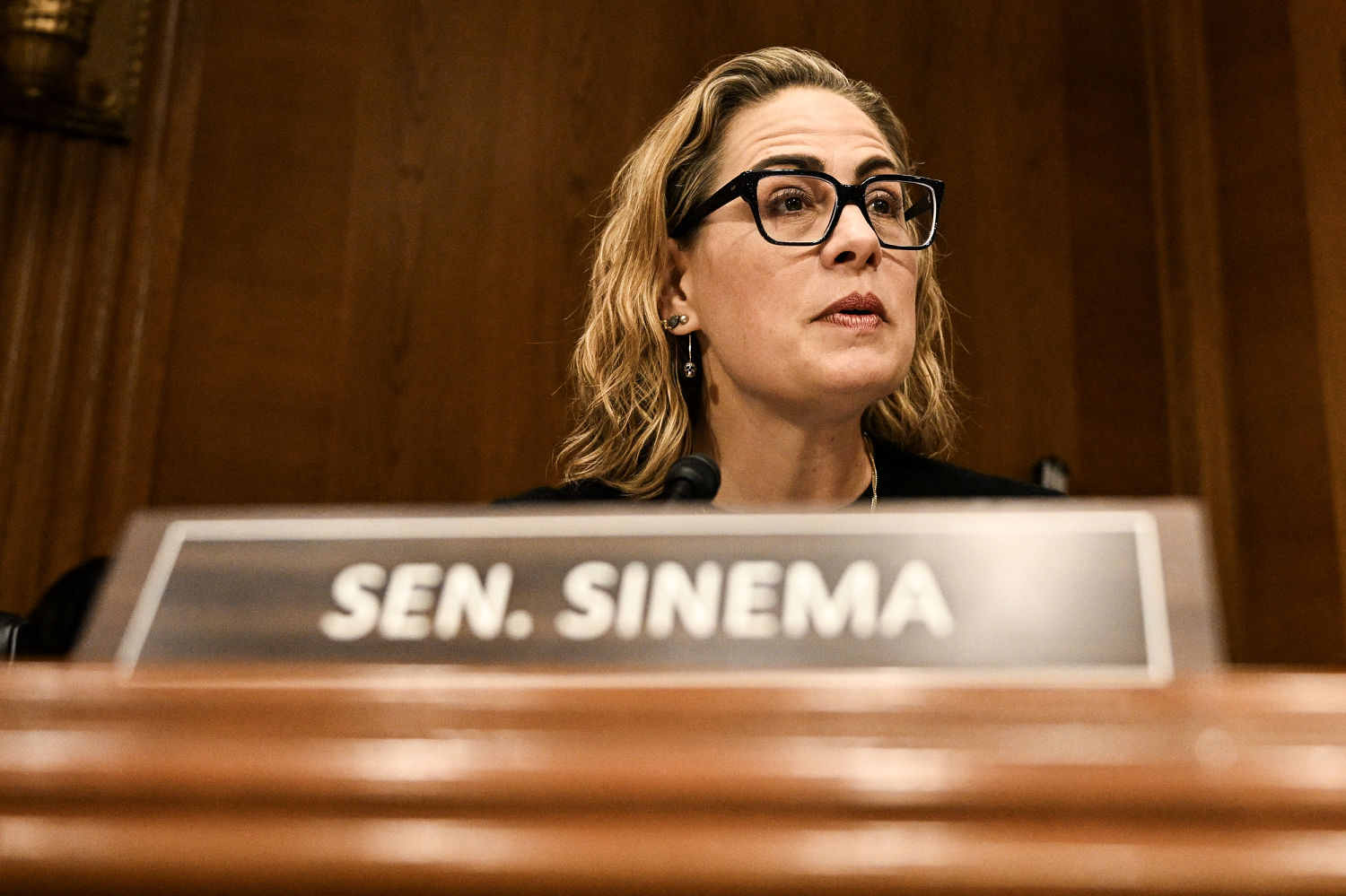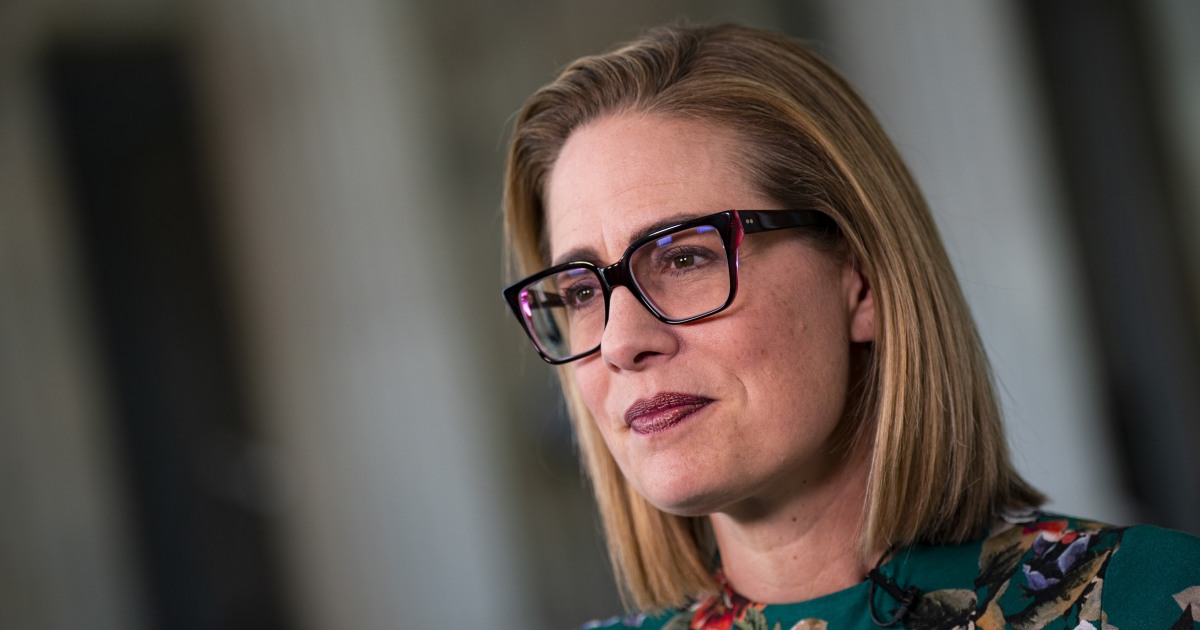
Independent Sen. Kyrsten Sinema announced Tuesday that she will not run for re-election this year, leaving the Senate after one term that saw her paint Arizona blue, leave the Democratic Party and play a key role in numerous legislative negotiations in a tightly divided Senate.
“Because I choose civility, understanding, listening, working together to get stuff done, I will leave the Senate at the end of this year,” Sinema said in a video posted on her X account.
Sinema’s decision paves the way for a tough and expensive fight for her seat — though it will be more straightforward than the messy three-way contest she would have prompted by staying in. The leading Republican, 2022 gubernatorial candidate Kari Lake, and the leading Democrat, Rep. Ruben Gallego, are already running hard to replace Sinema.
In her video, Sinema said partisan warfare has carried the day.
“Compromise is a dirty word. We’ve arrived at that crossroad, and we chose anger and division. I believe in my approach, but it’s not what America wants right now,” Sinema said.
Sinema’s decision comes as her prospects of victory appeared dim if she ran. Polling on the race is sparse, but surveys have consistently shown Sinema in third place in a hypothetical three-way contest featuring Gallego and Lake. It was unclear which candidate she would have pulled more support from.
Notably, Sinema believed she was stronger with Arizona Republicans than with her own former party. In a prospectus reported by NBC News last September, Sinema told donors her path to victory was to attract 10% to 20% of Democrats, 60% to 70% of independents and 25% to 35% of Republicans.
Republicans, who are hoping to flip the Senate back into their control this year, are eyeing Arizona as a potential pickup opportunity. Democrats hold a slim majority in the Senate, and the GOP needs a net gain of two seats to win the chamber outright or one seat plus the tie-breaking vice presidency.
Sinema’s political arc has been extraordinary, from Green Party organizer to the GOP’s erstwhile favorite Democrat in the U.S. Senate. In 2004 she became a Democrat and got elected to the Arizona legislature. At a 2011 progressive gathering, she labeled Arizona the “meth lab of democracy” while criticizing legislation that state Republicans were advancing. She ran and won an election in 2012 to the U.S. House, where her voting record showed some centrist bona fides. She used that moderate approach to get elected to the Senate in 2018, ending a losing streak for Democrats statewide.
Sinema was a pivotal vote during Biden’s first two years in the 50-50 Senate, using her clout to shape his signature Inflation Reduction Act and single-handedly nix provisions she opposed, like tax rate increases on corporations and the wealthy, and to pare back a provision aimed at lowering prescription drug prices. She was at the center of multiple successful bipartisan negotiations, including on infrastructure and gun safety.
Sinema left her party to become an independent in 2022, while still helping Democrats maintain control of the Senate. That came after an irreparable rift between Sinema and Arizona Democrats, as she stood in the way of some legislation proposed by Biden and voted to block Democratic efforts to undo the Senate filibuster to advance voting-rights legislation.
Previous key allies, like EMILY’s List, said they would no longer support Sinema, and there was talk of Gallego challenging her in a Democratic primary. She announced in Dec. 2022 that she would leave the Democratic Party and become an independent, but Sinema did not tip her hand about whether she’d run for re-election.
Sinema’s influence has waned since Republicans took control of the House and Democrats gained one seat in the Senate in 2023. The Arizona senator negotiated a border security deal with Democrats and Republicans earlier this year, but it was blocked by Republicans.
Arizona’s tilt to becoming a purple state was confirmed in 2020, when Biden narrowly carried the state against then-President Donald Trump. In 2022, Arizona’s other senator, Democratic Sen. Mark Kelly, won his re-election race by 5 percentage points, but in another statewide race, now-Gov. Katie Hobbs, a Democrat, beat Lake by less than 1 point.
Other key 2024 battleground races include Democratic Sens. Jon Tester of Montana and Sherrod Brown of Ohio, who are running for re-election in their states, while Democratic Sen. Joe Manchin of West Virginia is not running for another term.
